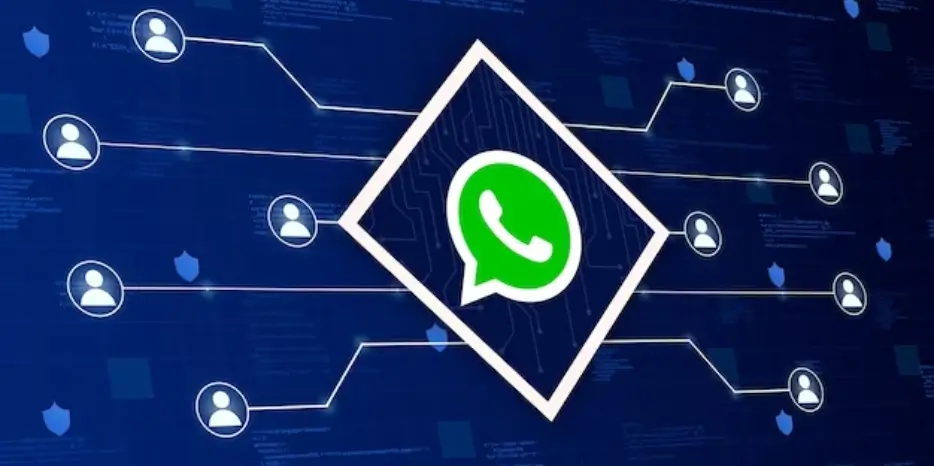- Written by: Textspeed
- October 4, 2024
Introduction:
In today’s digital-first world, effective communication with customers has become vital for enterprises to remain competitive. WhatsApp, with its massive global user base of over 2 billion people, has emerged as a powerful tool for businesses.
Enterprises can leverage WhatsApp Business API Service in chennai to offer seamless, real-time communication with customers, streamline processes, and enhance the overall customer experience.
This ultimate guide will walk you through why WhatsApp Business is essential for enterprises, its key features, how to set it up, and the best practices to optimize its use.
Introduction
Why WhatsApp for Business Is Essential for Enterprises
Key Features of WhatsApp Business for Enterprises
WhatsApp Business API for Enterprises
Step-by-step guide to setting up WhatsApp for business
Best Practices for Enterprises Using WhatsApp Business
Challenges of Implementing WhatsApp for Business in Enterprises
conclusion
Why WhatsApp for Business Is Essential for Enterprises
For enterprises, maintaining customer engagement is crucial, and traditional methods like email or phone calls often fall short in delivering the instant, personalized service customers expect today.
WhatsApp for Business offers a solution that bridges this gap, providing enterprises with a direct line to their audience on a platform they already use.
Key reasons why WhatsApp for Business is essential for enterprises include:
Direct Communication:
WhatsApp enables real-time, personal communication with customers. It supports rich media formats, which allow enterprises to send text messages, images, videos, documents, and even locations.
Global Reach:
With WhatsApp’s broad global reach, enterprises can engage customers worldwide, making it easier to support international customers or expand into new markets.
WhatsApp is a cost-effective communication tool, particularly for customer support, which can reduce the cost of phone lines and increase customer satisfaction.
Higher Engagement Rates:
WhatsApp messages typically have a higher open and response rate than email or SMS, which increases the chances of customer engagement.
In short, WhatsApp for Business enables enterprises to offer better customer support, drive sales, and build stronger customer relationships.


Key Features of WhatsApp Business for Enterprises
WhatsApp Business offers several features tailored for enterprises to facilitate customer communication at scale. Some of these features include:
Business Profile:
Enterprises can create a detailed business profile, including contact information, website links, and business hours. This helps customers identify and trust the business.
Quick Replies:
This feature allows enterprises to save frequently sent messages and respond to customer inquiries quickly. It ensures that customers receive timely responses, improving overall customer service.
Labels for Chat Organisation:
WhatsApp Business offers the ability to organise chats using labels. Enterprises can categorize conversations based on criteria such as ‘new customer’, ‘pending payment’, or ‘issue resolved’. This helps to streamline workflow management.
Automated Messages:
Enterprises can set up automated greetings or away messages to keep customers informed when agents are unavailable. This ensures that customers feel attended to, even outside of business hours.
Broadcast Messaging:
WhatsApp allows enterprises to send broadcast messages to multiple contacts at once. It’s a highly effective way to push out promotions, updates, or new offers to a wide audience.
WhatsApp Web/Desktop:
For customer support teams, using WhatsApp on a larger interface (desktop or web) makes it easier to manage multiple conversations and respond efficiently.
WhatsApp Business API for Enterprises
For large enterprises handling a significant volume of customer interactions, the WhatsApp Business API is essential. Unlike the basic WhatsApp Business app, the API provides scalability and integration with existing CRM systems or customer support platforms. The WhatsApp Business API offers several key highlights.
Automated Communication
Enterprises can set up automated chatbots to handle routine customer queries like FAQs, thereby reducing the load on human agents.
Multi-Agent Support:
The API supports multi-agent platforms, allowing entire customer service teams to manage enquiries through WhatsApp, in contrast to the regular app’s one-device limitation.
CRM Integration:
The API integrates with various customer relationship management (CRM) tools, enabling enterprises to track customer interactions, access chat histories, and personalize communication.
Rich Messaging Capabilities:
The API allows enterprises to send not just text messages but also rich content like images, videos, and attachments, facilitating more interactive and engaging customer experiences.
Security and Encryption:
The WhatsApp Business API offers end-to-end encryption, ensuring that all communication remains secure and confidential.
Step-by-step guide to setting up WhatsApp for business
Step 1: Download WhatsApp Business App
sized enterprises, the WhatsApp Business app is available on the Google Play Store and Apple App Store. Download and install the app on your business device.
Step 2: Register Your Business
Open the app and sign up using your business phone number. It’s crucial to use your business number to avoid mixing personal and business messages.
Step 3: Set Up a Business Profile
Go to the settings menu and create your business profile. Add important information like your business name, description, contact details, and website URL.
Step 4: Configure Messaging Tools
Set up automated messages, such as greetings or away messages, and organize quick replies for common questions. These tools will improve your response times and customer satisfaction.
Step 5: Label your chats.
Utilize labels to categorize customer interactions. This will help your team keep track of conversations and prioritize them accordingly.
Step 6: Explore WhatsApp Web/Desktop
To make managing chats easier, link your WhatsApp Business account to the web or desktop version. This will allow multiple customer service agents to manage messages from a single interface.
Step 7: Upgrade to the WhatsApp API (for large enterprises)
For enterprises needing more advanced features, such as multi-agent support or integration with CRM systems, apply for WhatsApp Business API access through a third-party provider.
Best Practices for Enterprises Using WhatsApp Business
Personalize Communication:
Customers appreciate personalized messages. Address customers by their name and tailor responses to their specific needs or enquiries.
Use rich media wisely:
WhatsApp allows sharing images, videos, and documents. Use these media to enhance communication, such as sending product demos, customer guides, or promotional materials.
Provide quick responses:
One of the key benefits of WhatsApp is real-time communication. Make sure your team is prepared to quickly handle enquiries, either manually or through automation.
Automate with Chatbots:
Implement chatbots for basic queries and FAQs, which will help reduce the workload on customer service agents while providing immediate assistance to customers.
Ensure Compliance with Data Privacy Laws:
Since WhatsApp is a highly encrypted platform, ensure that your use of customer data aligns with relevant privacy laws (e.g., GDPR in Europe).
Challenges of Implementing WhatsApp for Business in Enterprises
While WhatsApp offers significant benefits, there are a few challenges enterprises may encounter:
API Access Requirements:
Approval is required to access the WhatsApp Business API, typically through a WhatsApp Business Solution Provider (BSP). This can add extra steps to the setup process.
Message Template Approval:
Enterprises using the API for outbound messaging must get message templates approved by WhatsApp. This adds a layer of oversight and can slow down marketing or customer communication efforts.
Limited Broadcast Reach:
WhatsApp limits the number of recipients for broadcast messages, meaning enterprises can only send messages to users who have saved the company’s contact number. This can be a hurdle for large-scale marketing campaigns.
Managing Customer Expectations:
Customers perceive WhatsApp as an instant messaging platform. Enterprises may struggle to meet customer expectations for real-time responses, especially outside of business hours.
Conclusion:
WhatsApp for Business is a game-changer for enterprises aiming to enhance customer communication and engagement. With features like automated messaging, quick replies, and rich media capabilities, enterprises can streamline support, drive sales, and maintain a personalized connection with their audience.
By following the setup guide and adhering to best practices, enterprises can maximize the benefits of WhatsApp Business while mitigating potential challenges. The platform’s scalability, particularly with the WhatsApp Business API in Chennai, makes it ideal for large businesses aiming to offer superior customer service and seamless communication across global markets.
Enterprises that successfully integrate WhatsApp into their communication strategy will find themselves better equipped to handle the demands of modern customers while maintaining a competitive edge in the market.

